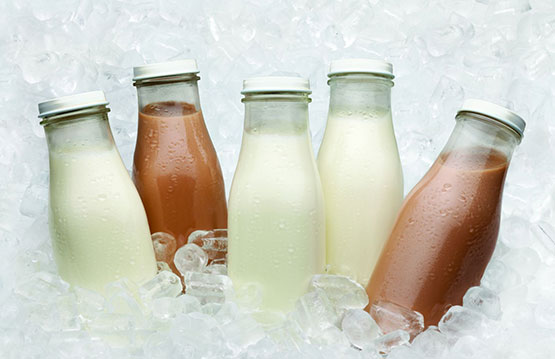Milk
It’s one of nature’s miracle foods. It tastes good. It works in many recipes. And it provides a lot of nutrition, for adults and kids.
An 8-ounce glass of milk supplies:
30% of the daily allowance of Calcium – for strong bones and teeth, healthy nerve function, muscle contraction, and blood clotting.

25% of the daily allowance of Vitamin D – for optimum absorption of calcium.
16% of the daily allowance of Protein – to build and repair muscles and provide energy for endurance exercise.
11% of the daily allowance of Potassium – to help maintain the body’s fluid balance and blood pressure.
10% of the daily allowance of Vitamin A – to promote normal vision and skin, to regulate cell growth, and to help the immune system.
13% of the daily allowance of Vitamin B12 – for building red blood cells that carry oxygen throughout the body.
24% of the daily allowance of Riboflavin – to help convert food into energy.
10% of the daily allowance of Niacin – to maintain normal function of enzymes and metabolism of sugars and fats.
That’s a lot of nutrition packed into one 8-ounce glass. And whenever you’re using other milk products, you’ll get the same nutrition.
There is some discussion about the differences between cow’s milk and soy milk. While soy milk may be advantageous because of its lower fat content and the absence of lactose, especially for those who are lactose intolerant, it does not contain the same amount of protein, B-vitamins, and numerous other nutrients that cow’s milk provides. And, unless it’s fortified, soy milk does not contain calcium.
Plus, it’s a versatile ingredient in a wide variety of recipes. So, milk is one of the best foods you can eat.

